-
 Bitcoin
Bitcoin $113900
-1.39% -
 Ethereum
Ethereum $3517
-4.15% -
 XRP
XRP $3.009
1.59% -
 Tether USDt
Tether USDt $0.9997
-0.04% -
 BNB
BNB $766.8
-1.41% -
 Solana
Solana $164.6
-2.38% -
 USDC
USDC $0.9998
-0.02% -
 TRON
TRON $0.3277
0.65% -
 Dogecoin
Dogecoin $0.2023
-1.67% -
 Cardano
Cardano $0.7246
0.05% -
 Hyperliquid
Hyperliquid $38.27
-4.77% -
 Sui
Sui $3.528
-0.52% -
 Stellar
Stellar $0.3890
-0.73% -
 Chainlink
Chainlink $16.16
-2.69% -
 Bitcoin Cash
Bitcoin Cash $539.9
-4.38% -
 Hedera
Hedera $0.2425
-2.00% -
 Avalanche
Avalanche $21.71
-0.97% -
 Toncoin
Toncoin $3.662
5.73% -
 Ethena USDe
Ethena USDe $1.000
-0.02% -
 UNUS SED LEO
UNUS SED LEO $8.964
0.35% -
 Litecoin
Litecoin $107.7
2.33% -
 Shiba Inu
Shiba Inu $0.00001223
-0.40% -
 Polkadot
Polkadot $3.617
-0.97% -
 Uniswap
Uniswap $9.052
-2.49% -
 Monero
Monero $295.1
-3.79% -
 Dai
Dai $0.9999
0.00% -
 Bitget Token
Bitget Token $4.315
-1.85% -
 Pepe
Pepe $0.00001060
0.11% -
 Cronos
Cronos $0.1342
-2.72% -
 Aave
Aave $256.0
-0.87%
How does blockchain technology optimize the energy trading market?
Blockchain enhances energy trading by boosting transparency, efficiency, and security, while also facilitating renewable energy integration and P2P trading.
Mar 29, 2025 at 04:21 pm
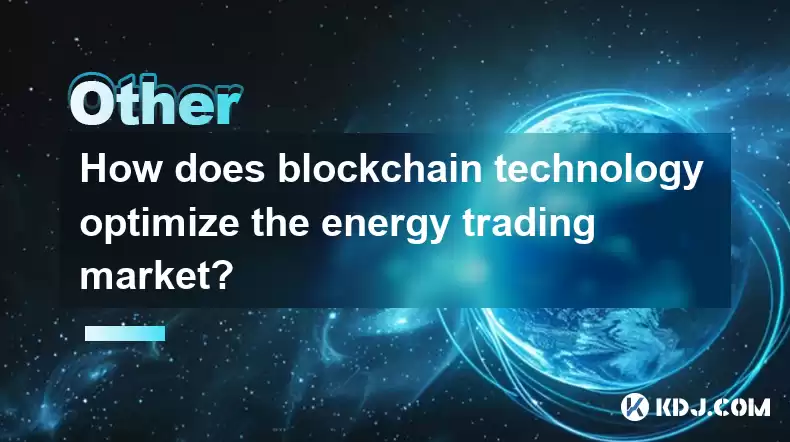
Enhancing Energy Trading with Blockchain: Transparency, Efficiency, and Security
Blockchain technology, with its inherent features of decentralization, transparency, and immutability, offers significant potential for optimizing the energy trading market. Its impact spans various aspects, from streamlining transactions to improving grid management and fostering renewable energy integration. This article explores how blockchain can revolutionize the energy sector.
One key area where blockchain excels is enhancing transparency in energy trading. Traditional energy markets often lack visibility into the entire supply chain. Blockchain creates a shared, immutable ledger, allowing all participants – producers, distributors, and consumers – to track energy generation, distribution, and consumption in real-time. This increased transparency builds trust and reduces the potential for fraud or manipulation.
Furthermore, blockchain significantly improves the efficiency of energy trading. Smart contracts, self-executing contracts with the terms of the agreement between buyer and seller directly written into lines of code, automate many aspects of the trading process, reducing reliance on intermediaries and accelerating transactions. This automation minimizes delays and administrative costs associated with traditional methods.
The decentralized nature of blockchain also enhances the security of energy transactions. By eliminating a central point of control, blockchain mitigates the risk of single points of failure and cyberattacks. The cryptographic security of the blockchain ensures the integrity and authenticity of energy transactions, reducing the likelihood of fraud and data breaches.
Blockchain facilitates the integration of renewable energy sources into the energy grid. By providing a transparent and secure platform for tracking renewable energy certificates (RECs), blockchain helps verify the origin and authenticity of renewable energy, encouraging its wider adoption. This also enables more efficient trading of RECs, incentivizing investment in renewable energy projects.
Peer-to-peer (P2P) energy trading is another promising application of blockchain. Blockchain-based platforms enable consumers to directly buy and sell energy among themselves, bypassing traditional utilities. This P2P model promotes energy independence, reduces reliance on centralized grids, and can facilitate the growth of microgrids and community-based energy systems.
The use of blockchain can also improve grid management and stability. Smart meters connected to a blockchain network can provide real-time data on energy consumption, enabling grid operators to better manage supply and demand, reducing the risk of blackouts and optimizing grid performance. This data-driven approach leads to more efficient resource allocation and improved grid stability.
Blockchain can also facilitate microgrid management. Microgrids, localized energy grids that can operate independently or connect to the main grid, benefit from blockchain's ability to track energy production and consumption within the microgrid, enabling efficient energy sharing and management among participants. This promotes energy resilience and independence at a local level.
Tracking carbon credits is another vital application of blockchain technology in the energy sector. Blockchain can provide a secure and transparent system for tracking and verifying carbon credits, ensuring their authenticity and preventing fraud. This is crucial for the effective implementation of carbon emission reduction programs.
Blockchain's impact extends to supply chain management within the energy sector. By tracking the movement of energy resources from production to consumption, blockchain provides increased visibility and traceability, reducing the risk of supply chain disruptions and improving overall efficiency. This also allows for better monitoring of environmental impacts.
Frequently Asked Questions
Q: What are the challenges of implementing blockchain in energy trading?
A: Challenges include scalability issues, regulatory uncertainty, the need for widespread adoption across the energy sector, and the integration with existing energy infrastructure. Addressing these challenges requires collaboration between industry stakeholders, regulators, and blockchain developers.
Q: How secure is blockchain technology in the context of energy trading?
A: Blockchain's cryptographic security mechanisms make it highly resistant to fraud and data breaches. The decentralized nature further enhances security by eliminating single points of failure. However, the security of a blockchain system also depends on the implementation and the security practices adopted by its users.
Q: What are the potential benefits of using smart contracts in energy trading?
A: Smart contracts automate transactions, reduce costs, increase efficiency, and enhance transparency. They also facilitate the execution of complex agreements with greater certainty and speed compared to traditional methods.
Q: How does blockchain improve the integration of renewable energy sources?
A: Blockchain provides a transparent and secure platform for tracking renewable energy certificates (RECs), making it easier to verify the origin and authenticity of renewable energy, encouraging investment and adoption.
Q: Can blockchain truly solve all the problems in the energy trading market?
A: While blockchain offers significant potential for optimizing the energy trading market, it is not a panacea. It's a powerful tool that can address many issues, but its successful implementation requires careful planning, collaboration, and addressing the technological and regulatory challenges.
Q: What are some examples of existing blockchain projects in the energy sector?
A: Several companies and organizations are exploring and implementing blockchain solutions in the energy sector. These include projects focused on P2P energy trading, carbon credit tracking, and supply chain management. Specific examples vary and are constantly evolving.
Q: What role do regulatory frameworks play in the adoption of blockchain in energy?
A: Clear and supportive regulatory frameworks are essential for the widespread adoption of blockchain in the energy sector. Regulations need to address issues such as data privacy, security, and the legal enforceability of smart contracts to foster trust and confidence in blockchain-based energy trading platforms.
Disclaimer:info@kdj.com
The information provided is not trading advice. kdj.com does not assume any responsibility for any investments made based on the information provided in this article. Cryptocurrencies are highly volatile and it is highly recommended that you invest with caution after thorough research!
If you believe that the content used on this website infringes your copyright, please contact us immediately (info@kdj.com) and we will delete it promptly.
- Bitcoin Strategy: Saylor's Not Hoarding, He's Building an Empire
- 2025-08-02 22:30:12
- Bitcoin Bloodbath: Macro Pressures and Liquidations Unleash Crypto Chaos
- 2025-08-02 22:30:12
- Tron, Cold Wallets, and Crypto Trends: What's Hot in the Market?
- 2025-08-02 23:10:12
- Bitcoin's Wild Ride: Davinci, Investors, and the $500K Dream
- 2025-08-02 23:50:12
- Worldcoin, Identity, WLD Price: Decoding the NYC Crypto Buzz
- 2025-08-02 21:10:12
- Shiba Inu: Utility and Community Strength Drive Crypto's Evolution
- 2025-08-02 21:50:12
Related knowledge
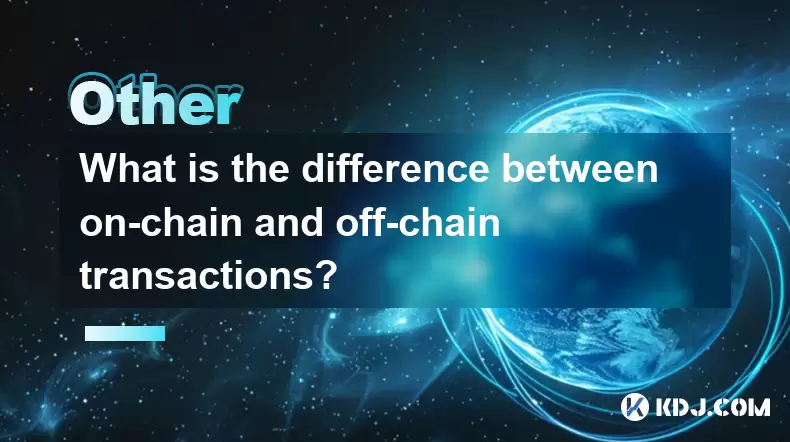
What is the difference between on-chain and off-chain transactions?
Aug 02,2025 at 04:22pm
Understanding On-Chain TransactionsOn-chain transactions refer to digital asset transfers that are recorded directly on a blockchain ledger. These tra...

What is the double-spending problem and how does blockchain prevent it?
Aug 02,2025 at 01:07pm
Understanding the Double-Spending ProblemThe double-spending problem is a fundamental challenge in digital currency systems where the same digital tok...
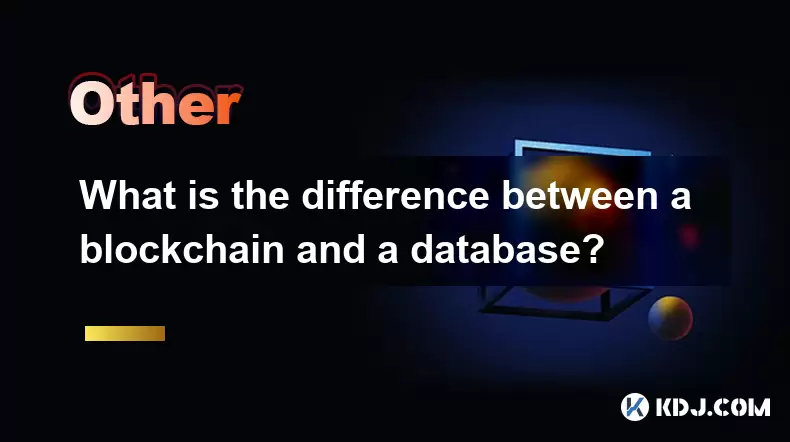
What is the difference between a blockchain and a database?
Aug 01,2025 at 09:36pm
Understanding the Core Structure of a BlockchainA blockchain is a decentralized digital ledger that records data in a series of immutable blocks linke...

How does blockchain handle scalability?
Aug 02,2025 at 02:58pm
Understanding Blockchain Scalability ChallengesBlockchain scalability refers to a network's ability to handle an increasing volume of transactions wit...
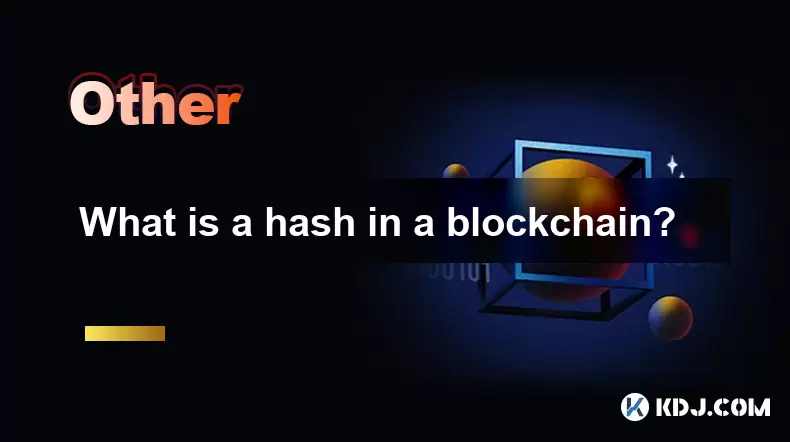
What is a hash in a blockchain?
Aug 02,2025 at 05:28am
Understanding the Concept of Hash in BlockchainA hash in the context of blockchain technology refers to a unique digital fingerprint generated by a cr...
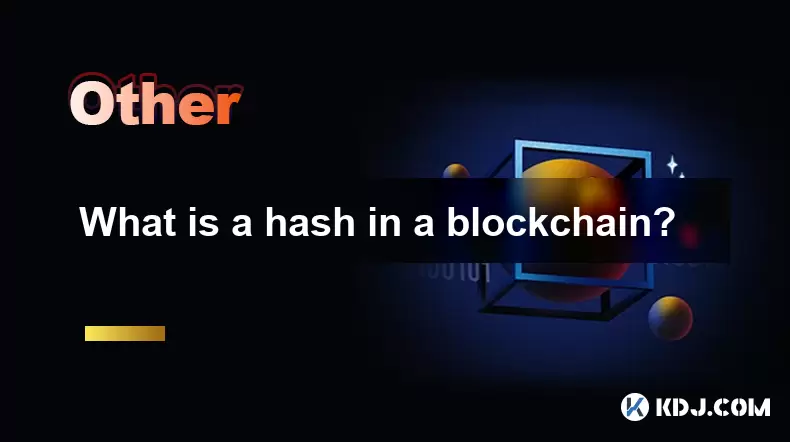
What is a hash in a blockchain?
Aug 02,2025 at 04:43am
Understanding the Concept of Hash in BlockchainA hash in the context of blockchain technology refers to a unique digital fingerprint generated by a cr...

What is the difference between on-chain and off-chain transactions?
Aug 02,2025 at 04:22pm
Understanding On-Chain TransactionsOn-chain transactions refer to digital asset transfers that are recorded directly on a blockchain ledger. These tra...

What is the double-spending problem and how does blockchain prevent it?
Aug 02,2025 at 01:07pm
Understanding the Double-Spending ProblemThe double-spending problem is a fundamental challenge in digital currency systems where the same digital tok...

What is the difference between a blockchain and a database?
Aug 01,2025 at 09:36pm
Understanding the Core Structure of a BlockchainA blockchain is a decentralized digital ledger that records data in a series of immutable blocks linke...

How does blockchain handle scalability?
Aug 02,2025 at 02:58pm
Understanding Blockchain Scalability ChallengesBlockchain scalability refers to a network's ability to handle an increasing volume of transactions wit...

What is a hash in a blockchain?
Aug 02,2025 at 05:28am
Understanding the Concept of Hash in BlockchainA hash in the context of blockchain technology refers to a unique digital fingerprint generated by a cr...

What is a hash in a blockchain?
Aug 02,2025 at 04:43am
Understanding the Concept of Hash in BlockchainA hash in the context of blockchain technology refers to a unique digital fingerprint generated by a cr...
See all articles

























































































